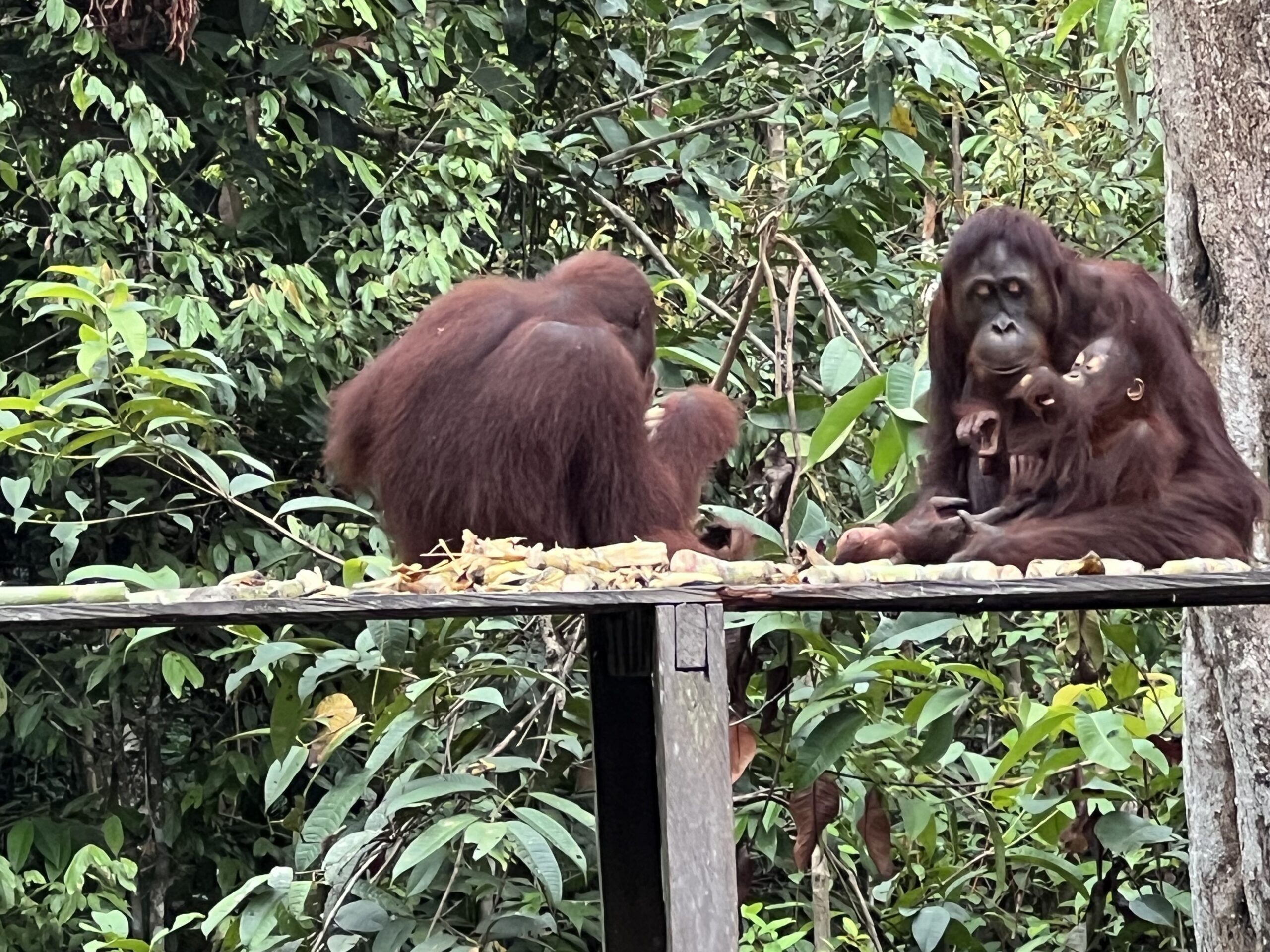
I am under my mosquito netting at 3 am with jet lag at the comfortable Rimba Orangutan Eco Lodge, surrounded by deep jungle and a river. Yesterday with very little sleep, we flew into the main city in Central Kalimantan, Pangkalanbun to be met with a familiar blast of hot air, humidity and a friendly guide. Leaving the airport, we drove through military enclaves, some quite old undoubtedly established by the Dutch when it controlled this part of the world. Further on, the urban scene as we wound our way through town to the tourist docks, was a familiar one from earlier visits to poor rural parts of the world: small open air store front shops, some of decaying wood, and some of more modern concrete blocks with metal roofs, offering an array of fruits, vegetables and everyday goods. This was at 8 am so shops were just opening as we left Jakarta on a 5:45 am flight to find ourselves in a different world by 7 am. We were told that there is almost no agriculture in this area as the ground is all sodden peat. Produce is therefore delivered daily from Java, a volcanic island with rich soil.
There is only one main reason for tourists to travel here — to experience the orangutan feeding stations and the conservation work of Camp Leakey. So we were not surprised that all the non-Indonesians on our plane (maybe 20% of the load) ended up on the dock with us, waiting for their wooden Klotok boats to take them up the Sekonyer River to the Tanjung Puting National Park.
Our boat is brightly colored yellow and green and, like the others, has a covered top floor with beds on or slightly raised off the wooden deck, outside comfortable seats for viewing, a large dining table with sink, and down a few steep steps, a toilet. The kitchen and staff sleeping quarters are on the deck below and we meet the captain, his assistant and somewhere is a woman who is the cook.
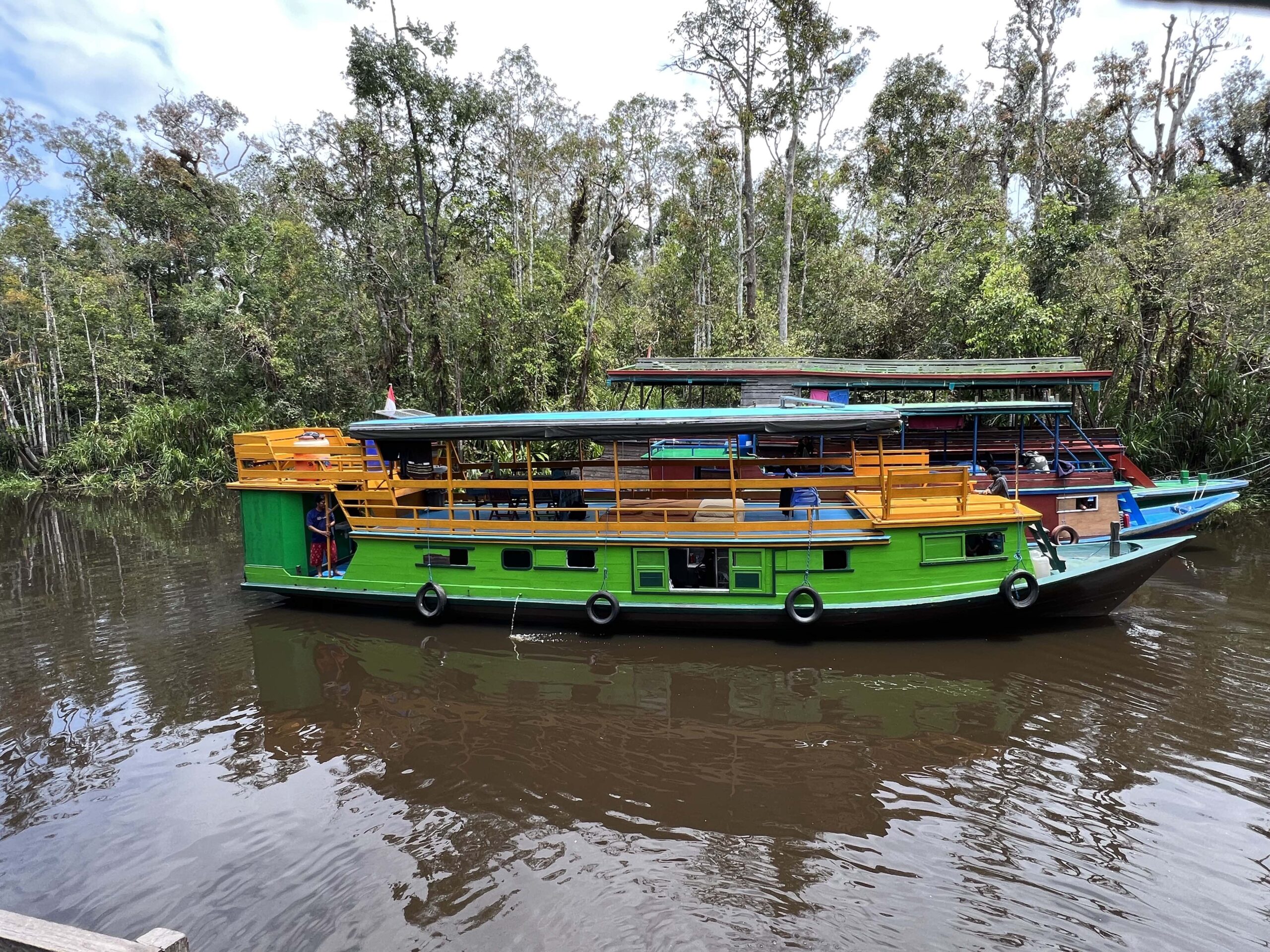
When we head out of town we hear a sweet bird sound and are told it is a recording as one of the main commercial industries right here are artificial concrete “cliff” houses for certain birds to attract them to build nests which are then harvested and sold to the Chinese for birds nest soup.
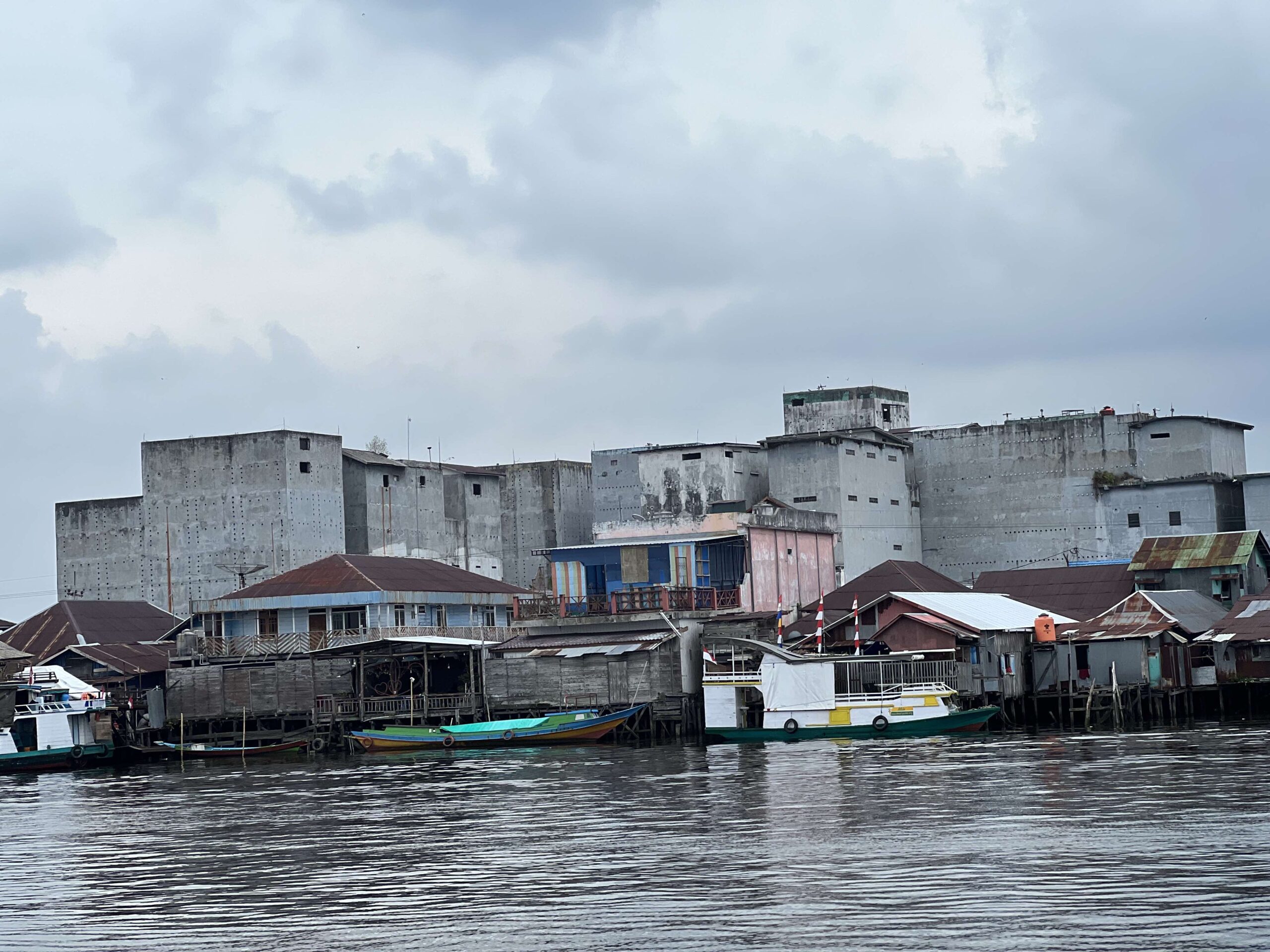
Further out, we head up a narrower tributary heralded by a Tanjung Putting landmark and then find ourselves in a magical world: motoring along with no other boats in sight along a corridor of high Nipa and mangrove trees with a deliciously cool breeze floating over us as we sit and watch a very primeval world slip by.
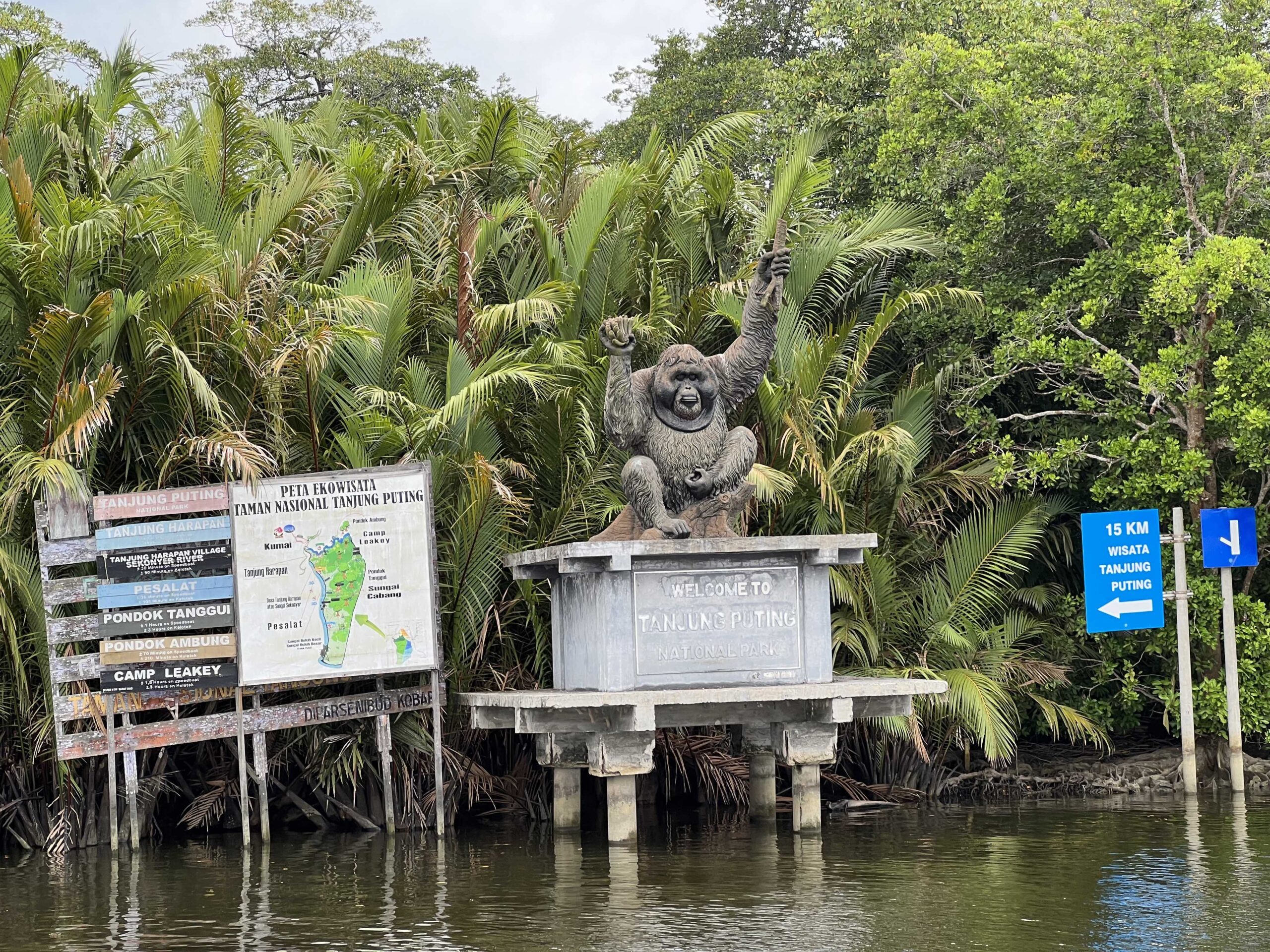
Lunch is an incredible feast of vegetables, a sweet and sour tempeh (happily for me, a staple of Indonesia, fermented soy beans), and whole crispy fish cooked with tomatoes together with stir-fried noodles and white rice. Satiated, Jack sleeps a little while Julie and I are too mesmerized by the scenery to do anything but sit at the front of the boat and talk.
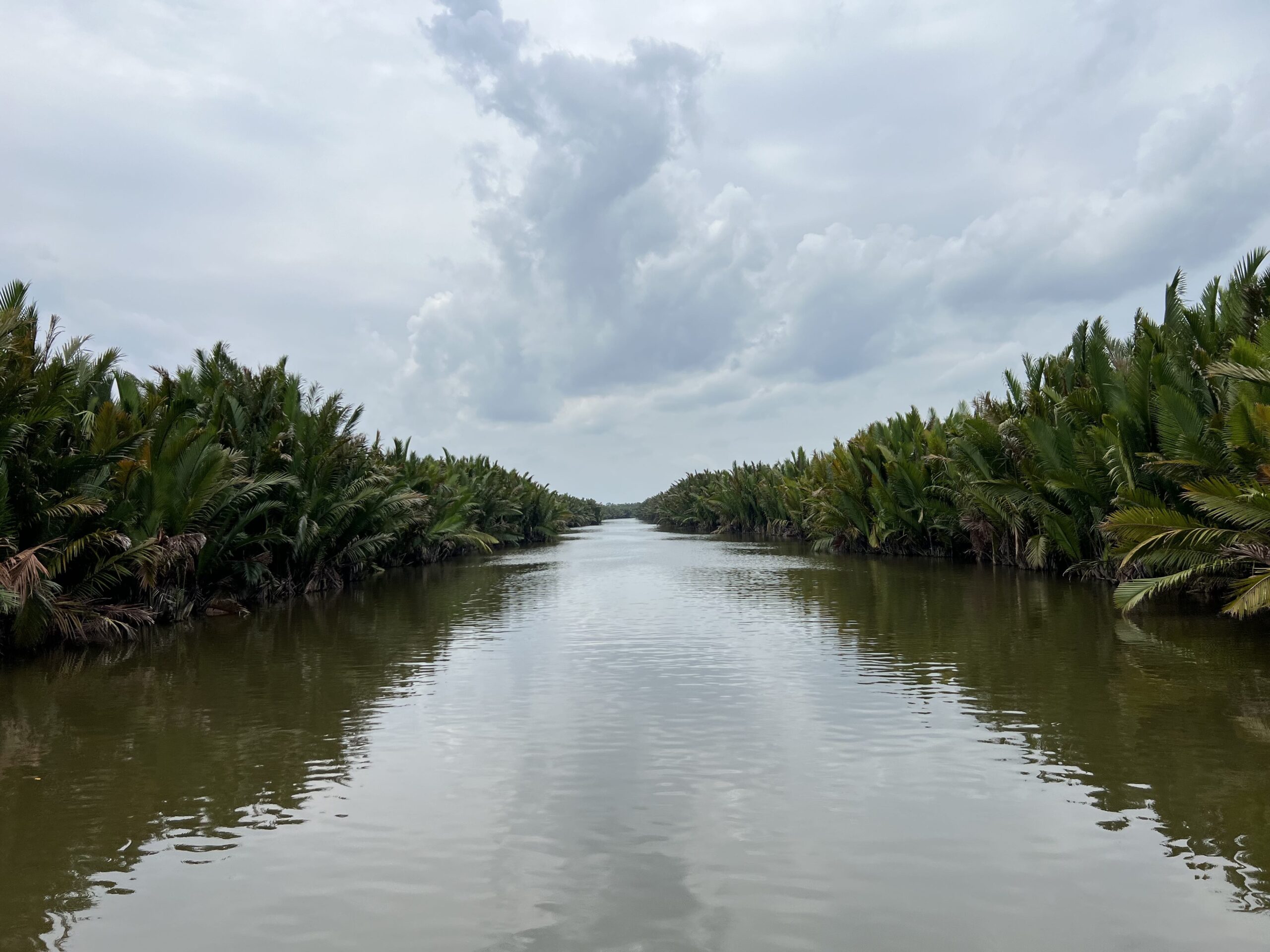
At the Rimba Lodge while we prepare for our afternoon outing, it begins to rain, a pouring deluge of water around our elevated bungalows which brings out the sweet tropical smell of the jungle.
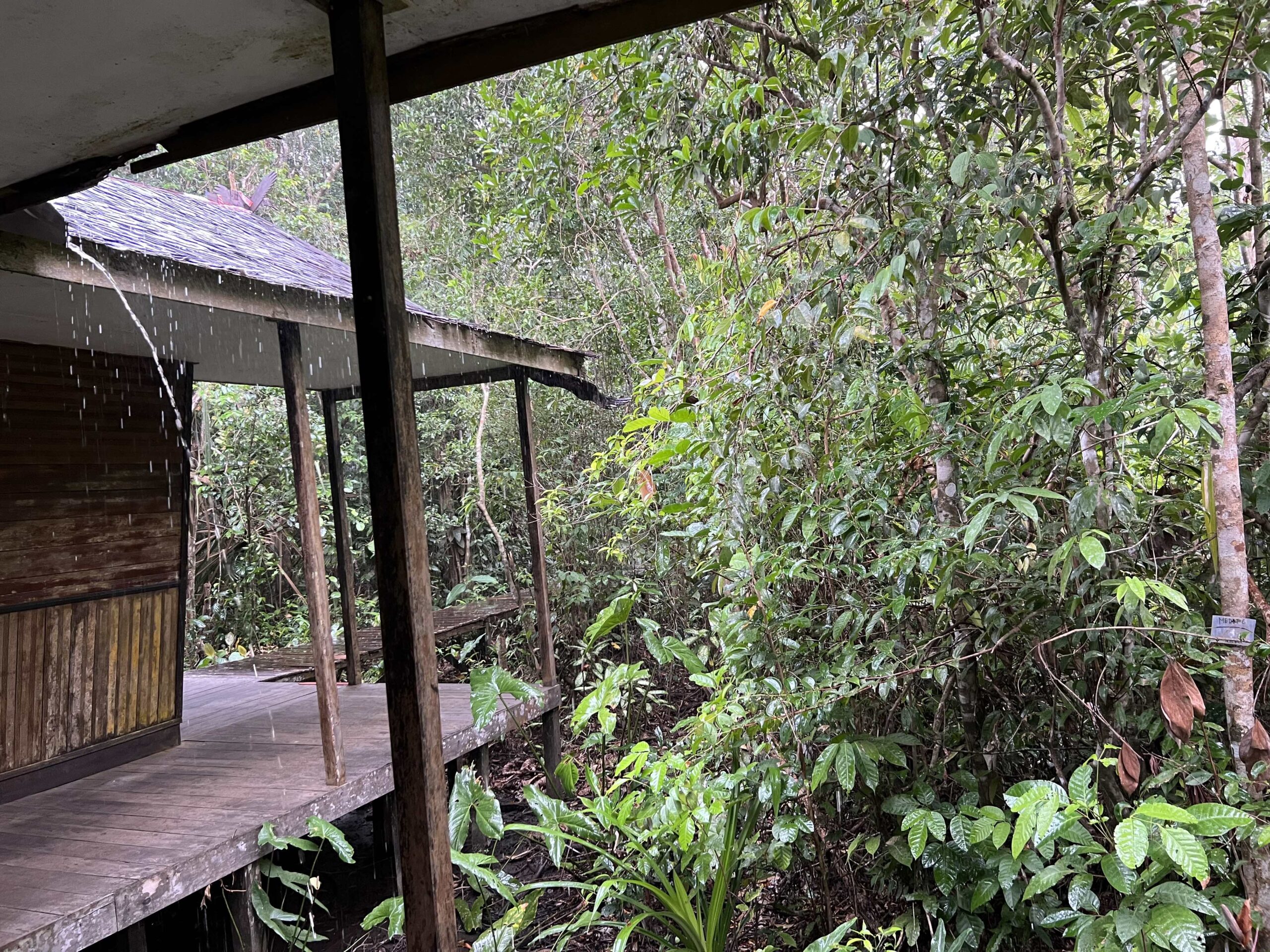
As we arrive a little late to our Tanjung Harapan orangutan feeding station, the boats are stacked up by the small dock and we must climb over and between other wooden boats, requiring some steadiness and agility, and down narrow boar steps, traversing across railings from boat to boat until reaching the shore. It reminds me why I am doing this journey now and not when I am any older.
We walk by ourselves along a path from the government park headquarters to the area set up to supplement the food of several generations of orangutans who were reintroduced into the wild. These were animals that were taken by local people from infancy as pets and then upon government orders released back Into the wild around 1970. As they never learned how to forage for survival, they are still being offered mounds of bananas and sugar cane every day to make sure they stay healthy.
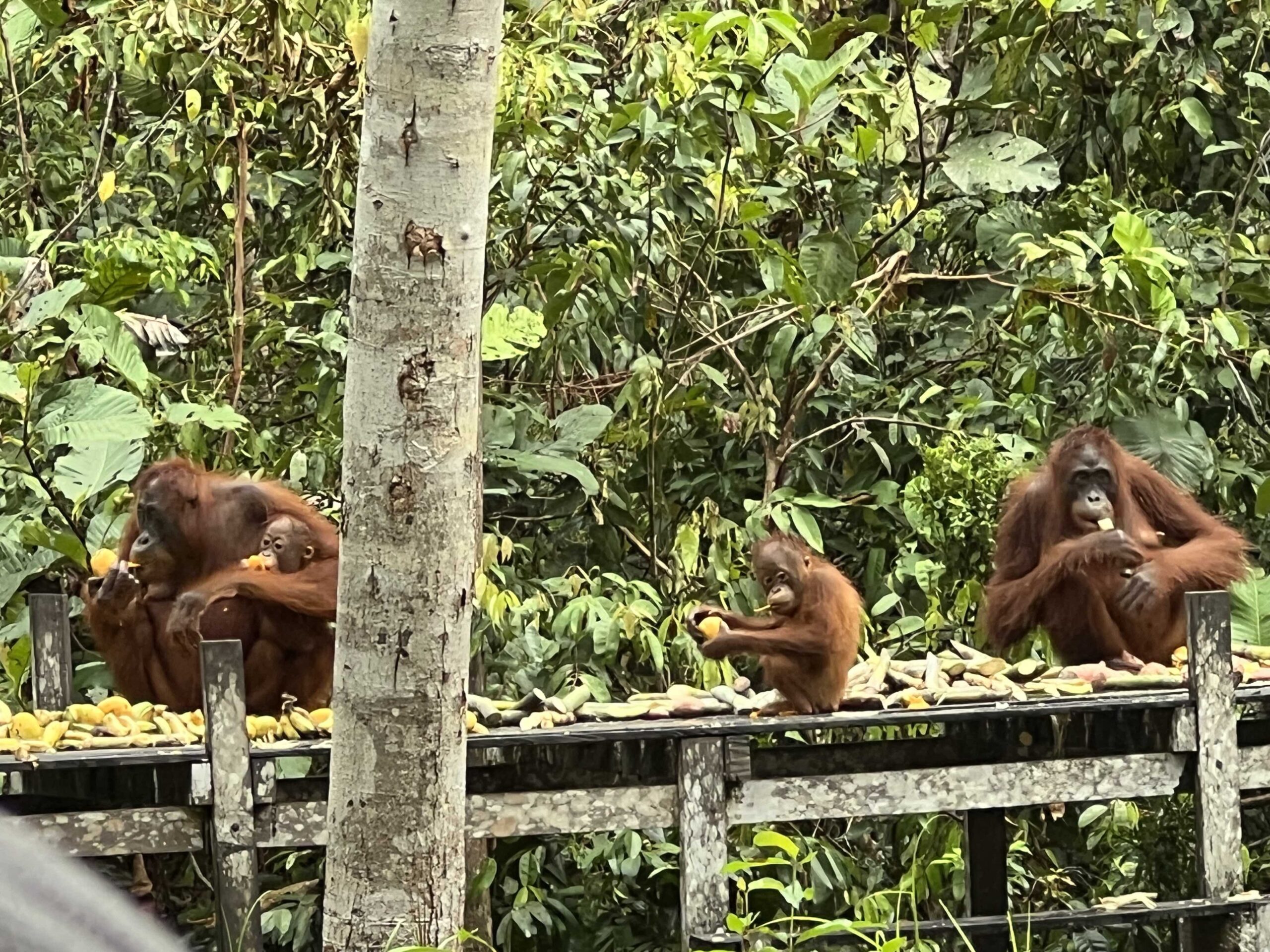
There are crowds of people, many from our plane, sitting on wooden benches and watching the red orangutans arrive and eat their fill, all female we were told as the large males are managing on their own while the females are suckling their young who are attached to their chests and being slowly taught how to manage in the high trees.
An interesting and exhausting first day on very little sleep. I am in bed by 8 pm.
